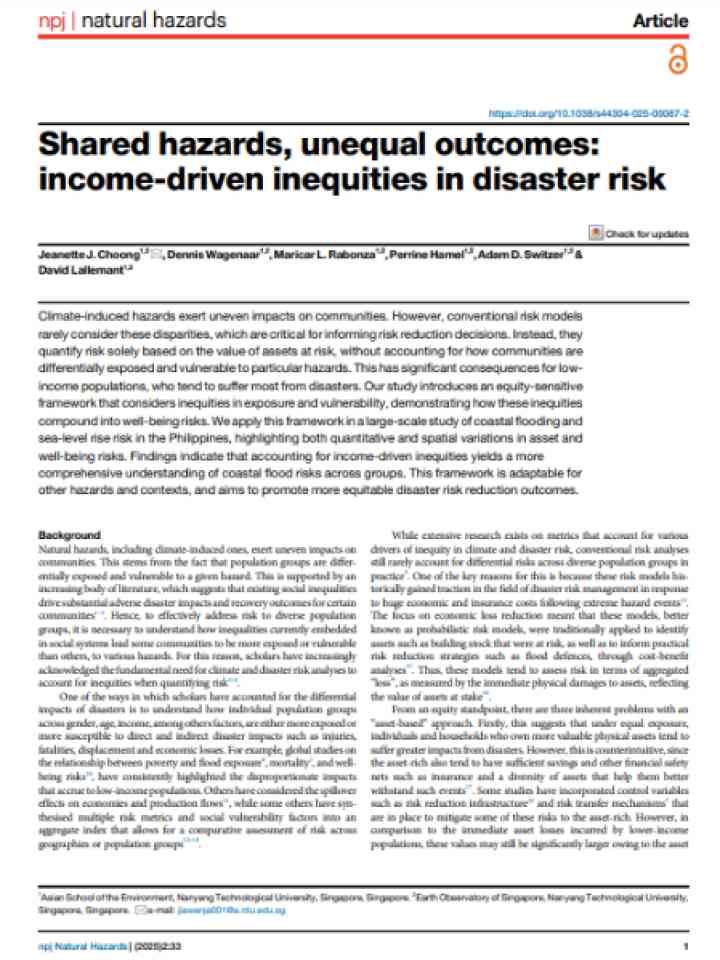Shared hazards, unequal outcomes: income-driven inequities in disaster risk
Climate-induced hazards exert uneven impacts on communities. However, conventional risk models rarely consider these disparities, which are critical for informing risk reduction decisions. Instead, they quantify risk solely based on the value of assets at risk, without accounting for how communities are differentially exposed and vulnerable to particular hazards. This has significant consequences for low-income populations, who tend to suffer most from disasters. This study introduces an equity-sensitive framework that considers inequities in exposure and vulnerability, demonstrating how these inequities compound into well-being risks. The authors apply this framework in a large-scale study of coastal flooding and sea-level rise risk in the Philippines, highlighting both quantitative and spatial variations in asset and well-being risks.
Findings indicate that accounting for income-driven inequities yields a more comprehensive understanding of coastal flood risks across groups. This framework is adaptable for other hazards and contexts, and aims to promote more equitable disaster risk reduction outcomes.
Explore further
